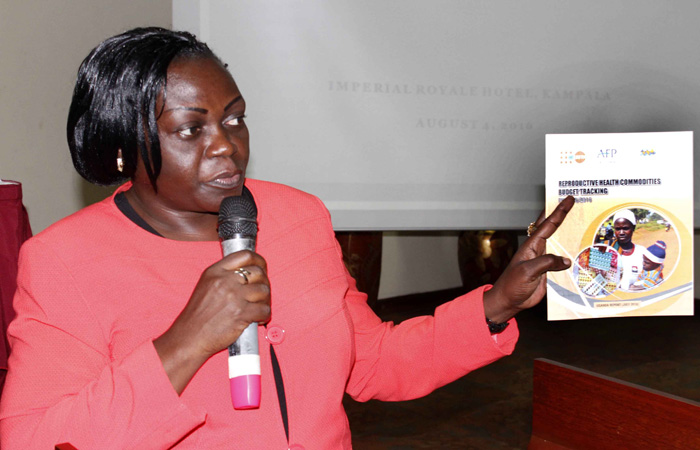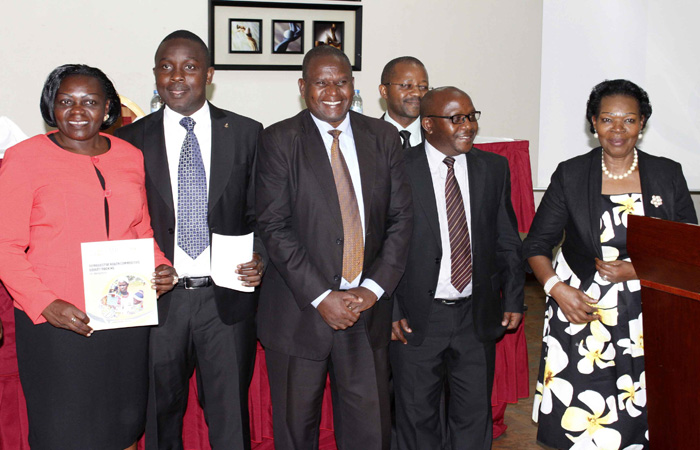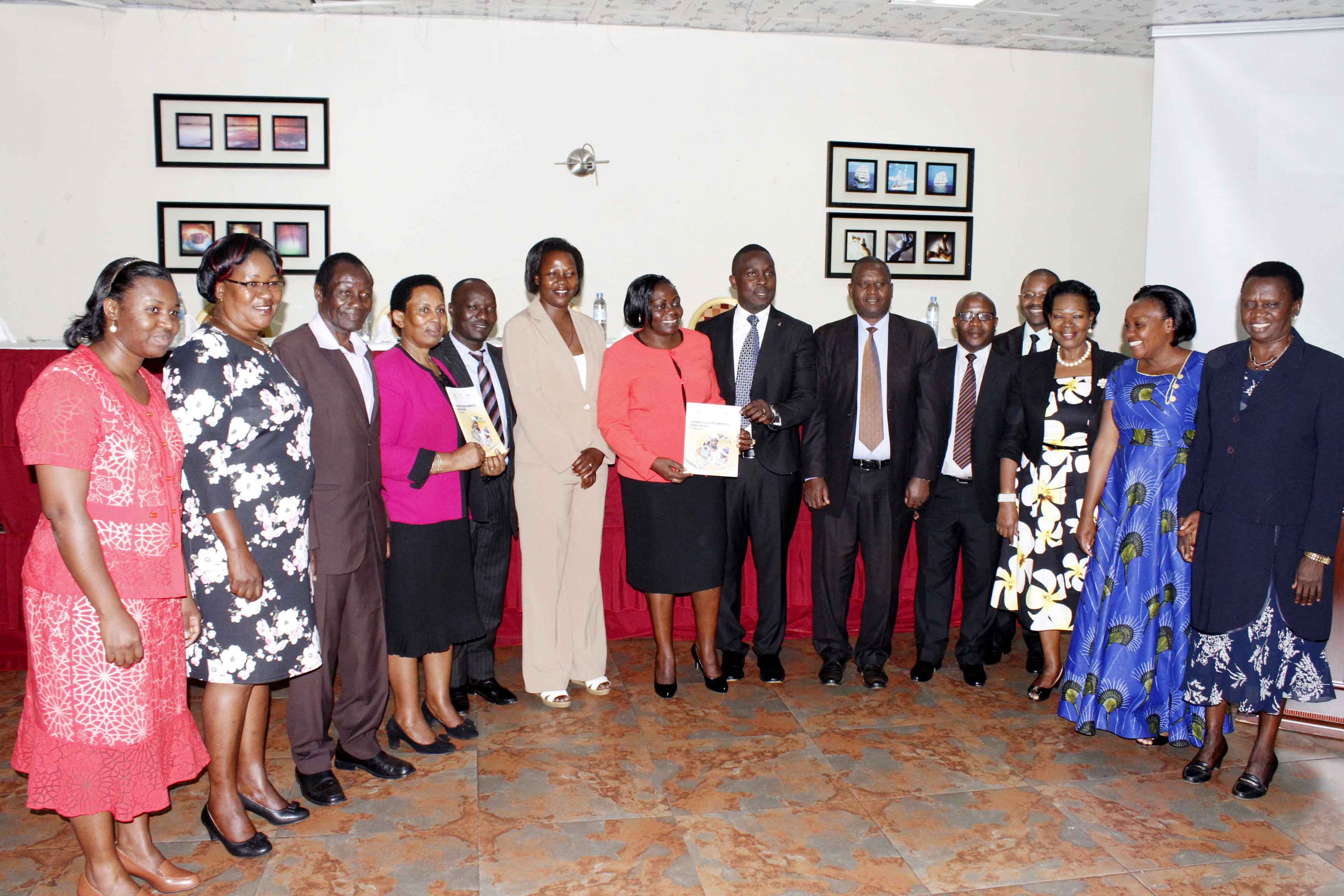Dissemination of the Reproductive Health Commodities
Budget Tracking Report FY 2015/2016
Partners in Population and Development (PPD ARO) organized a meeting for the launch of the Reproductive Health Commodities Budget Trucking report which was held on 4th August 2016 at the Imperial Royale Hotel in Kampala. The ceremony was presided by Hon. Sarah Opendi, Minister of State for Health (Primary Health Care). Also in attendance were representatives from UNFPA Uganda Country Office, Dr. Placid Mihayo the Ministry of Health FP Focal Person and Patrick Mugirwa the PPD-ARO Programme Manager. The meeting brought together several Ugandan parliamentarians, members of the parliamentary commission on health, Civil Society Organizations as well as the media.
Refer to the following links to the local print media articles on the report:
Uganda commits to universal access to family planning and to reduce unmet need for family planning from 40% to 10% by 2020. At the July 2012 Family Planning Summit in London, H.E President Y.K. Museveni committed to increase the budget for Family Planning from domestic sources from US$ 3.3 million to US$ 5 million over the next five years and the mobilization of an additional US $ 5 million from development partners. H.E President Museveni also reinforced government’s plan to strengthen the National Medical Stores (NMS) as well as improve the distribution of commodities to the public and private health delivery units.
It’s against this background that with support from Advanced Family Planning (AFP) and UNFPA, PPD ARO hired a consultant to track the RH budget for FY 2015/16, whose report was disseminated during a meeting with Ugandan Parliamentarians and key stakeholders on. The meeting was also the occasion to brief parliamentarians on the status of FP funding allocation as per the FY2016/17 budget estimates with a view to having a way forward to ensure that the FP2020 financial commitments by Uganda are reflected in the FY 2016/17 budget.
In his remarks, Patrick Mugirwa noted that the Reproductive Health Commodities budget FY 2015/1 6 tracking report is a result of a highly consultative process with key stakeholders. He recognized the fundamental inputs of all who participated in the production of this report. He also prayed that the report would provide useful inputs to advocacy processes of ensuring that the FP 2020 commitments are realized. On behalf of PPD ARO, he recognized the support of Advance Family Planning (AFP) and United Nations Population Fund (UNFPA) for the financial support that enabled the tracking exercise and production of the report. PPD ARO also recognizes the insurmountable efforts of Dr. Moses Muwonge from Samasha Medical Foundation for leading the entire tracking process until the final report was produced. Mr Mugirwa reiterated the need to discuss the challenges with the FP budget spending with a view to agree on a way forward to ensure that the FP2020 financial commitments (and other commitments) are achieved.
In her remarks, Minister Sarah Opendi noted that ‘’ in order to improve the quality of the population over the period, Uganda will, among others, focus on creating a more sustainable age structure by reducing the high fertility rate through increased access to quality reproductive health services particularly family planning. This means that family planning commodities must be available at all times when a woman visits the health facility. It is also important to note that the facility must have a qualified health worker to administer the method’’. She added that the high unmet need of 34% is evidence that the women out there are producing children at a time when they either want to limit or space child births.
In his note regarding the general country Policy Environment, Dr. Mihayo Placid noted that Uganda Family Planning Costed Implementation Plan- 2015-2020 totaled to $236 on the 2016-2020 Investment case and the available funds were; 110 million USD from World Bank over five years and $40 Million USD from Global Fund Financing Facility (GFF).
General Government Health Expenditure as % of General Government Expenditure, 1995- 2010
This map shows the Country Progress Against the Abuja 15% Target for Health Spending from the Government Budget
Data from 1995 is shown by default. To visualize data from later years (1996 to 2010), the year can be selected from the lower-left side pull-down menu.
This map shows 1995-2010 data:
This map is for 2010 data only:
This visualization allows the selection of any African country to see the country’s progress in health spending between 1995 and 2010:




Leave a Reply
You must be logged in to post a comment.